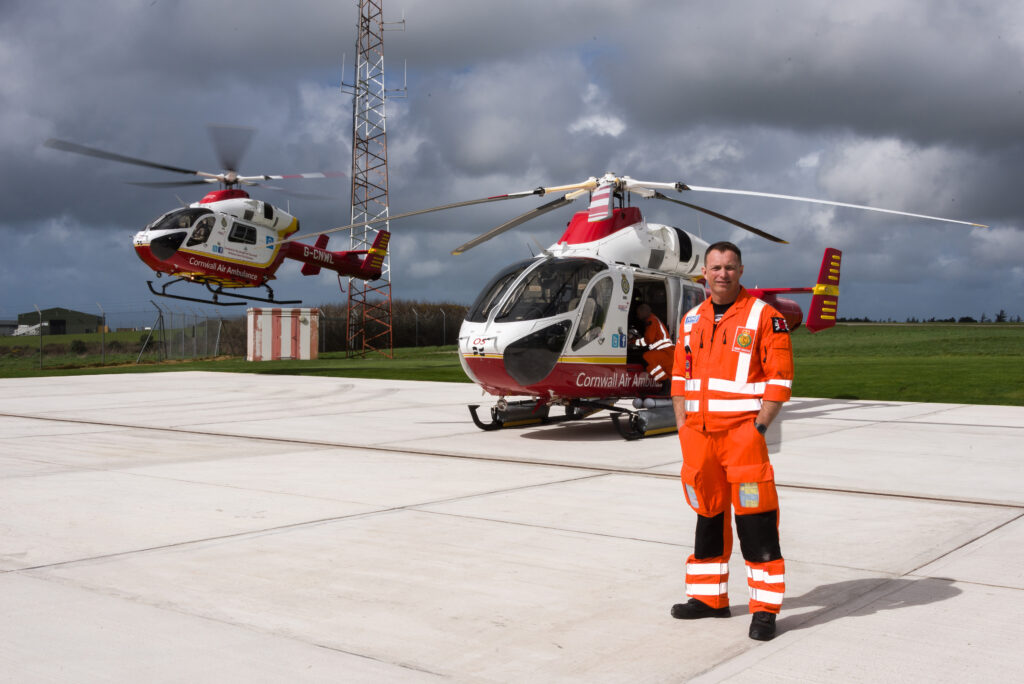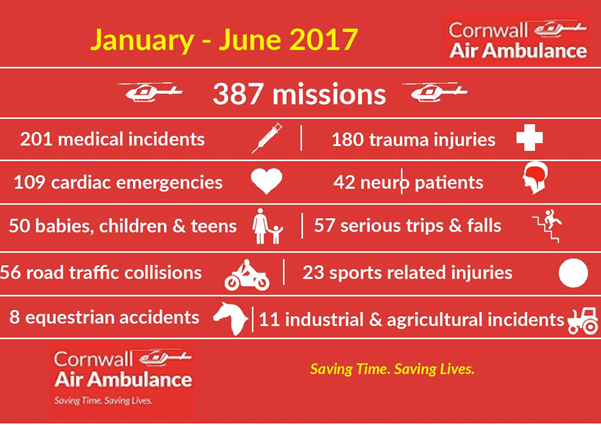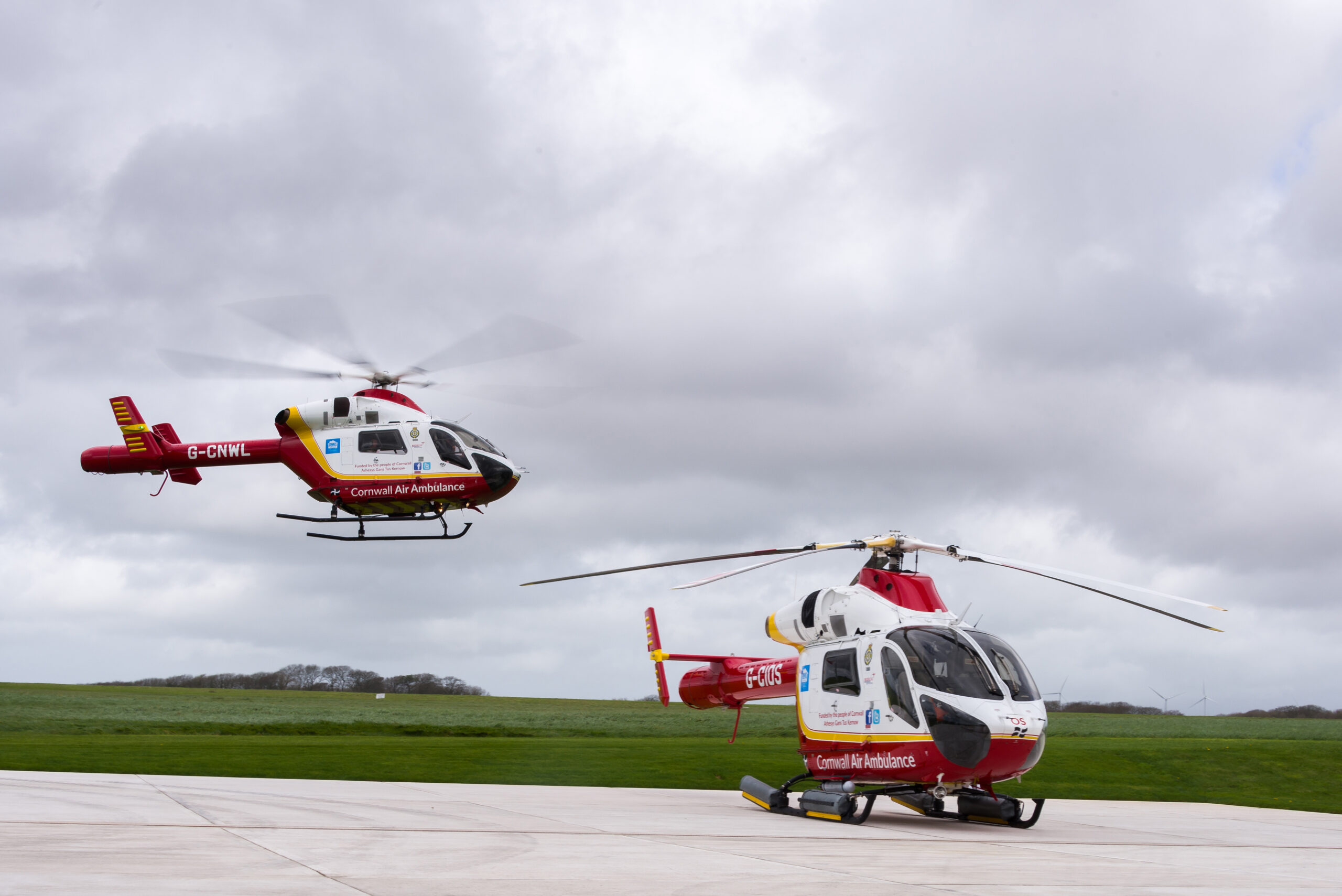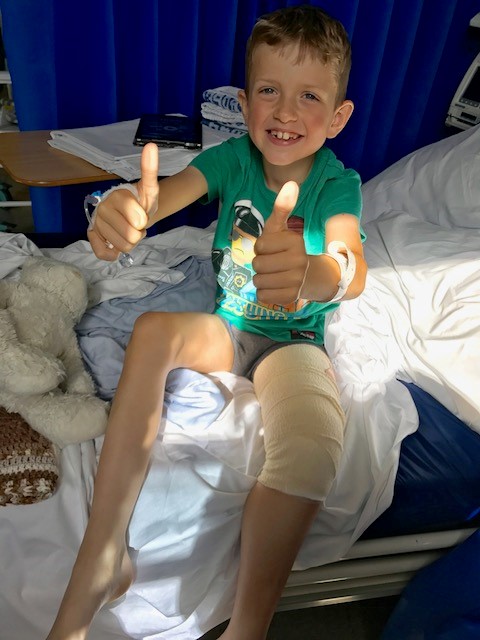Cornwall Air Ambulance 2017 six-month stats revealed

SEARCH BLOG POSTS
SEARCH BY CATEGORIES
SEARCH BY MONTH
Cornwall Air Ambulance flew 387 missions in the first six months of 2017, new figures have revealed.
The charity, which relies on donations to keep flying, has released its mission statistics for January to June 2017, to show the people of Cornwall and beyond the difference their support has made in the first half of the year.
During that time, the crew of Cornwall Air Ambulance attended 201 medical incidents and dealt with 180 trauma related injuries. A total of 108 missions involved people suffering from cardiac problems and 42 were to neurological emergencies.
Cornwall Air Ambulance paramedics Jeremy and Kris won the heart of Henry. The youngster named a teddy bear after the paramedics who cared for him in his hour of need, calling it JeremyKris.
The crew responded to 999 calls for help from 57 people who had suffered serious trips or falls and attended 56 road traffic incidents. The crew also went to the aid of 23 people who had suffered injuries while playing sport, including eight horse riding incidents.
It takes the Cornwall Air Ambulance MD02 Explorer helicopter an average of 12 minutes to fly to someone in urgent need of medical care anywhere on mainland Cornwall and around 30 minutes to get to the Isles of Scilly. From January to June 2017, there were 15 missions flown to the Isles of Scilly.
Of the 387 missions carried out in the first six months of this year, 50 were to emergencies involving babies, children and teenagers. And a total of 66 missions were carried out in the Cornwall Air Ambulance critical care cars, which are used when bad weather such as high winds and fog make it impossible to fly.

Paula Martin, Chief Executive of Cornwall Air Ambulance, said: “It was a busy first six months of the year for Cornwall Air Ambulance and if the missions continue at this rate, we are on course to surpass last year’s total of 774. But the numbers only tell part of the story.
“Behind each mission statistic is a loved one in urgent need of medical care. For them, the sound of the air ambulance arriving truly is a lifeline. But not a single mission could have been flown without donations and support from Cornwall’s residents and visitors to the county.
“I would urge people to go to the Cornwall Air Ambulance website and use the new Direct Debit service to give whatever they can each month to keep their ambulance flying and saving lives.”
Visit cornwallairambulancetrust.org and hit the donate button to sign up to support Cornwall Air Ambulance by Direct Debit.
2017 case study Henry Kay

Henry Kay, 7, from Leicestershire, was on holiday in Cornwall with his family when a trampoline accident left him in such agnosing pain he thought he was going to die.
The youngster was just three days into a camping holiday when he landed awkwardly while at Bodmin on Wednesday 26 July. As he landed, the lad twisted his foot and leg, breaking his femur in four places. Henry’s mum Janet, who works as a nurse, saw the accident happen and dashed to her son’s aid.
She said: “He was in excruciating pain. It was so unbearable he was going in and out of consciousness. It was so bad that Henry said to me, mummy, I think I’m going to die. It’s the worst thing when you are a parent, seeing your child in that much pain.”
A 999 call for help was made and the crew of Cornwall Air Ambulance were tasked to the emergency. However, the weather was too bad for the helicopter to fly so air ambulance paramedics Jeremy Griffiths and Kris Lethbridge drove to the incident under blue lights in one of the charity’s critical care cars.
Henry was in so much pain that the decision was made to give him Ketamine, a very powerful form of pain relief that has sedative properties and which disassociates a patient from their injury. Only HEMS critical care paramedics are permitted to use the drug to sedate a patient.
Janet said: “When Jeremy and Kris arrived they took control of the situation confidently. As soon as they walked through the door everyone felt relieved. They weren’t only good with Henry but they were brilliant with the whole family. They were true heroes.”
Another ambulance arrive which Henry was transferred into before being taken to hospital. He was accompanied on the journey by air ambulance paramedic Kris who continued to monitor his condition.
Janet added: “The care we received was incredible. Even when we got to the hospital, Jeremy held my hand and took me inside. It’s been a horrible experience but we have been blessed to meet such wonderful people throughout.”